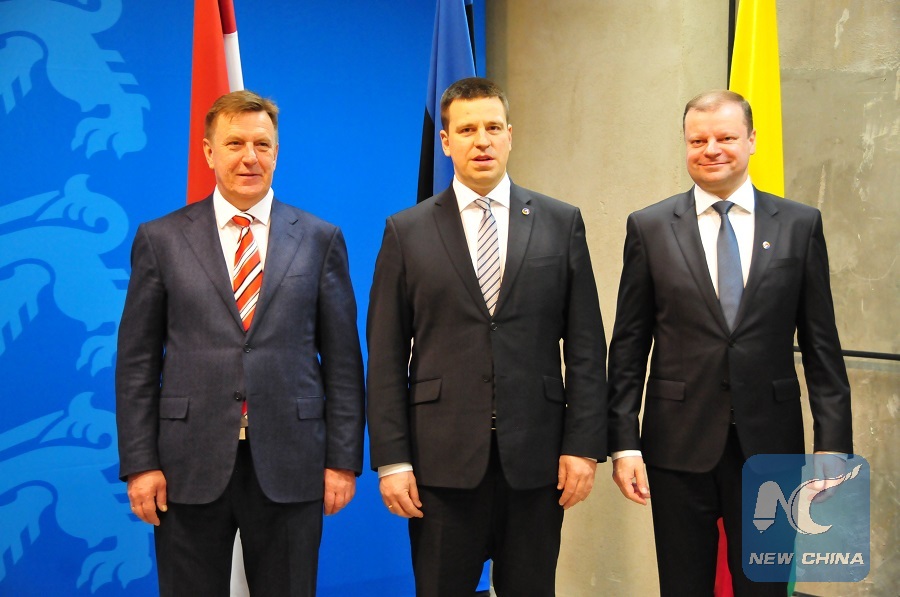
Latvian Prime Minister Maris Kucinskis (L), Estonian Prime Minister Juri Ratas (C) and Lithuanian Prime Minister Saulius Skvernelis pose for photos before signing an agreement in Tallinn, Estonia, on Jan. 31, 2017. (Xinhua/Janis)
TALLINN, Feb. 1 (Xinhua) -- The prime ministers of the three Baltic states during a meeting in Tallinn on Tuesday inked an agreement outlining the general technical parameters, route and construction schedule of Rail Baltica European-gauge railroad line, local media reported.
The agreement also regulates the ownership of and access to the planned railway infrastructure, sets out terms for the project's funding and provides guidelines for choosing the infrastructure operator.
The EU's Connecting Europe Facility (CEF) is expected to cover up to 85 percent of the railway project's total costs, which are expected to reach an estimated 5 billion euros (5.39 billion U.S. dollars), with the national governments of Estonia, Latvia and Lithuania planning to provide the rest of the necessary funding.
The conclusion of the Rail Baltica agreement was essential in order not to lose the EU funding for the project as the three Baltic states are preparing to apply for the next portion of CEF money.
At a joint news conference that followed the signing of the agreement in the Estonian capital, the three Baltic premiers stressed the deal's significance as a signal demonstrating the Baltic states' ability for cooperation.
Estonian Prime Minister Juri Ratas described Rail Baltica as an extremely important project that will be driving the Baltics' economic growth in the future. The transport corridor that will be created to connect the Baltic states and the rest of Europe will be a sustainable and important, he said.
Latvian Prime Minister Maris Kucinskis pointed out that now the railroad project has been launched already and that "there is no turning back on it."
Lithuanian Prime Minister Saulius Skvernelis indicated that the signing of the agreement was proof of the Baltic countries' political strength and ability to "implement strategic projects of this scope."
Rail Baltica is intended to reestablish a direct railway connection between the Baltic states and the European railway network. The project is expected to facilitate regional integration by means of a railway link from Helsinki to Tallinn, Riga, Kaunas, Warsaw and Berlin and might potentially be extended to Venice.

